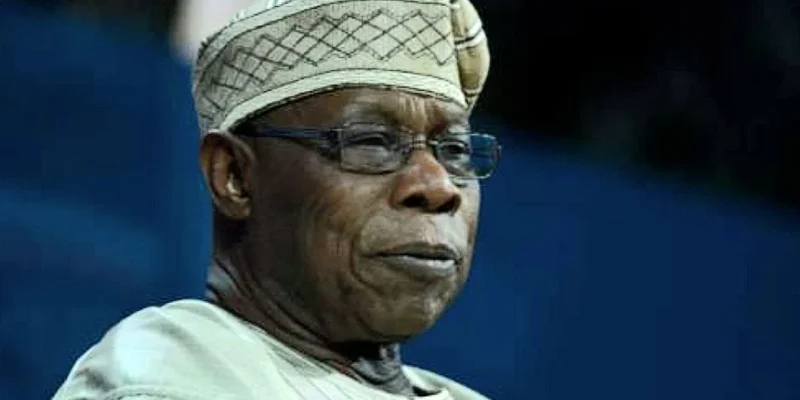Former President Olusegun Obasanjo has revealed that he once turned down a proposal suggesting Nasir El-Rufai, then Minister of the Federal Capital Territory, as his potential successor at the end of his administration in 2007.
Speaking on Friday at the second edition of the Ajibosin Platform Annual Symposium held in Abeokuta, Ogun State, Obasanjo said he declined the recommendation because he believed El-Rufai was not yet mature enough to manage the complexities of leading a nation like Nigeria.
The former president made the comment while responding to a speech by former Minister of Aviation, Osita Chidoka, who delivered the keynote address at the event. Chidoka had shared how El-Rufai introduced him to Obasanjo at age 34 — an encounter that eventually led to his appointment as Corps Marshal of the Federal Road Safety Corps (FRSC).
Midway through Chidoka’s address, Obasanjo interjected with a light-hearted revelation. “Let him tell you,” Obasanjo said, smiling. “He didn’t mention that when I was leaving government, he was pushing that his friend, El-Rufai, should be brought in as my successor.”
Turning to Chidoka, he added jokingly, “No be so?” to which the former aviation minister nodded in agreement.
“I did not yield to the pressure,” Obasanjo continued. “Later, he asked why I didn’t agree, and I told him El-Rufai needed to mature. Many years later, after seeing his performance, he came back to me and said, ‘You were absolutely correct — El-Rufai needed to mature.’”
Despite the light tone of the exchange, Obasanjo commended both men for their contributions during his administration, describing them as “individuals with special attributes” who played significant roles in the successes recorded between 1999 and 2007.
Speaking further on the subject of leadership, Obasanjo lamented the absence of structured training for public officeholders in Nigeria. “It’s only in politics that I found out there is no training for leadership,” he said. “Even among armed robbers, I was told there is apprenticeship. But in politics, there’s no training for leadership. That’s not good enough.”
In his keynote address titled Leadership, Governance, and Institutional Renewal in Nigeria, Chidoka argued that the country’s persistent governance failures stem not from a lack of ideas but from weak systems and institutions that fail to ensure accountability and continuity.
“Leadership finds its true measure not in speeches or charisma, but in the systems it leaves behind,” Chidoka said. “Moral conviction must translate into the everyday machinery of governance — rules, routines, and institutions that make competence predictable and corruption difficult.”
He maintained that Nigeria’s challenge has never been the absence of ideas but the failure to build sustainable frameworks that outlive individual leaders. “We must make leadership accountable by building national dashboards and accountability systems that track every promise, every budget, every outcome,” he added.
The event drew an audience of political leaders, scholars, and civic advocates, all of whom engaged in robust discussions on leadership reform, institutional integrity, and governance renewal as key pillars for Nigeria’s future development.

Comments